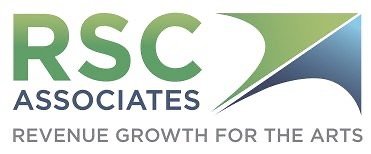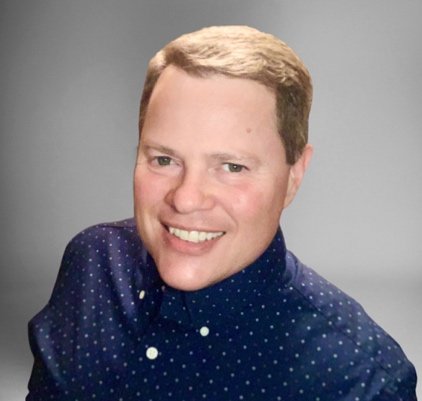A FEW FAVORITE QUOTES TO AMUSE AND INSPIRE
With Bob Swaney
I like clever sayings, fun sayings, and sayings that help me remember to be focused and effective. In today’s podcast I’m going to share ten of my favorite sayings – most of which I use regularly. I thought it might be fun to describe the saying, and tell you where I heard it and what it means to me, especially when applied to fundraising in the arts. I hope you like these, too, and that you find some value and application in hearing them.
Read the full transcript below or click the button to listen.
FULL TRANSCRIPT OF THE PODCAST
I like clever sayings, fun sayings, and sayings that help me remember to be focused and effective. So today I’m going to share ten of my favorite sayings – most of which I use regularly. I thought it might be fun to describe the saying, and tell you where I heard it and what it means to me, especially when applied to fundraising in the arts. I hope you like these, too, and that you find some value and application in hearing them.
Only do what only you can do.
SOURCE: Robert C. Jones, former CEO of the Indianapolis Symphony Orchestra and the National Symphony Orchestra. He provided this so very early in my professional career, and I still use it at least once a week.
WHAT IT MEANS TO ME: Don’t try and do everyone’s job or be involved in every decision. People are counting on you to do something very specific, and often very special. Applying this adage helps assure we celebrate the unique talents that each person brings to the table, AND it helps remind us to not meddle in every area of a project or organization. It brings necessary efficiency and effectiveness to our work and our outcomes.
IN FUNDRAISING IT MEANS: give your personal best in time, talent, treasure and support. If you are best equipped to bring a new relationship to the table, bring it. If you have access to someone who might be interested in your organization, then cultivate them. If you are a talented asker, then focus there.
“Don’t wish it was easier, wish you were better. Don’t wish for less problems, wish for more skills. Don’t wish for less challenge, wish for more wisdom.”
SOURCE: Jim Rohn, International Motivational Speaker
WHAT IT MEANS TO ME: This motto spurs action and perseverance and tenacity and grit. Immediately, I think back to the time when the Pandemic broke out. When the world shut down, my team and I completely re-tooled RSC Associates’ coaching approach within a two-week period. We felt 100% driven to continue providing highly-effective, highly-producing fundraising coaching so our arts organizations could stay alive during the shutdown – even if we had to offer some of our services for free. And we did! We adapted to “hard.” We adapted to “problems.” And we gained and shared volumes of wisdom in a very short period. During those early months of the shutdown, this quote came back to me time and time again.
IN FUNDRAISING IT MEANS: Don’t ‘wish’ the goals were smaller, or the volunteers to be more engaged, or the staff to be more organized, or donors to give more readily. Instead, look at everything within your fundraising program through the lens of “If we had to do this, how would we do it?” This adjustment helps you get better and meet the growing challenges in our field.
Anything worth doing is worth overdoing.
SOURCE: a personal friend of mine whom I respect immensely
WHAT IT MEANS: We should over-prepare, be overly generous with time, thoughts, and resources. Be fully invested in success. Big momentum equals big results. It means taking no half-measures when pursuing excellence.
IN FUNDRAISING IT MEANS: If you have a fundraising event, go the distance to make it special. If you are going to make direct asks, don’t make five, make twenty-five. If you are going to help steward donors, be all-in to share and gather information that brings your investors more joy in their relationship with your organization. Overdoing doesn’t mean over-exaggerating – it means being ready for excellence.
Be Good. Get Good. Give Up.
SOURCE: Greg House, M.D. fictional character
WHAT IT MEANS: In anything you do, you have these three choices. One is based on talent, one on skill and one on failure.
IN FUNDRAISING: If you are a natural-born fundraising gift-asker, good for you. But if you are like most of us (me included), you need to study and practice and practice and study to improve. I like to say that fundraising is simple but not easy. If you agree, then you’ll likely also agree that “getting good” is key to becoming a solid solicitor. It’s a journey, and if you aren’t willing to make the journey, then it’s okay to give up and get out of the way so that others can get good and then be good.
I may have many faults, but being wrong ain't one of them.
SOURCE: Jimmy Hoffa, labor union leader
WHAT IT MEANS: You might find it odd that I would celebrate a funny saying by a fellow like Hoffa. But, because of his reputation, I can both laugh at the saying and find definitive meaning in it. Some may react to this quote as “arrogance” while others label it as “confidence.” I choose the latter because part of being confident is being ready, well-informed, thoughtful, and decisive. And quite often, never looking back.
IN FUNDRAISING: The translation here is straightforward. Be confident. Be confident in how identify, qualify, cultivate, ask, and steward donors. Plan well. Find the balance between being well-informed about a prospect and pacing prospect pipeline activities. Know your organization, know your donors, and be adaptable. Take action that drives the fundraising results. Don’t spend a lot of time second-guessing yourself. Be confident.
Some will. Some won't. So what? Next.
SOURCE: Various sources over the years
WHAT IT MEANS: Don’t dwell on the failures. Don’t over-analyze or get paralyzed from taking the next action. Do what’s right. Take the results it yields, and then move on to what is next.
IN FUNDRAISING: Once again, fundraising is simple but not easy. And when two, three or five gift solicitations don’t go well, our fallback is to sometimes freeze up and overthink. We focus on the failure – the ACT of failing – rather than advancing the work. Healthy examination of donor disappointments is necessary, but analysis to point of paralysis is not. Most often, donor disappointment has nothing to do with you or your arts organization. Quite often, it has something to do with things you cannot influence nor control. So don’t waste too much time on it. When a failure hits, you should respectfully acknowledge and review the journey and the outcome. Then move on.
It’s not about how many donors you get, it’s about how many you keep.
SOURCE: This is a Swaney-ism
WHAT IT MEANS: Adding patrons takes time, effort, and money. Don’t waste those precious resources without a plan for patron retention.
IN FUNDRAISING: Specifically in fundraising, the fundraising’s job is to get donors, keep donors and then eventually increase the gift size of donors. Acquiring donors without a plan on how to keep them is an avoidable waste, and your organization will be worse off for not having a donor retention plan. Do I mean that, in some ways, fundraising is a numbers game? Yes. And for organizations who might bristle at this platitude because it sounds too much like sales, I say, “Get over it. We’re in the people and money business. That’s just the plain, unvarnished truth.”
You have around six months to change the culture before the culture changes you.
SOURCE: This is another Swaney-ism
WHAT IT MEANS: When you work in an arts organization, there is always something that could work better. Rarely is it the art itself. It’s usually something operational, financial, or leadership-based. A new leader, generally a board chair, a CEO or a department leader, has a few months to nudge the culture in the way they think best. After that, leaders will ‘settle’ back into how things have been.
IN FUNDRAISING: Bad best-practices, ineffective strategies, and sloppy fundamentals. Good habits beget good results – and good habits are driven by good organizational culture. If you don’t have a good culture, chances are you aren’t getting good fundraising results. Therefore, a new Development Director, or a new Development Committee Chair, must be ready, willing, and able to quickly conclude what is working well and what needs attention in both the organization and the fundraising program. Breaking through the “this is how we’ve always done it” often requires an outside voice. Over the years, filling this role is one of RSC’s most common entry points, because good counsel can expedite good changes that provide improved results.
If we had to do this, how would we do it?
SOURCE: I can’t recall the source, but it’s one of my favorite tools
WHAT IT MEANS: This is a powerful question – one that breaks down barriers, especially with nay-sayers, long-time volunteers, and staff. As a coach, I often run into a situation where an idea is shared, and there’s that one person in the group pouncing on it with “why it won’t work.” This response kills creativity and the healthy exploration of ideas. So, my way to break through this is to say, “Fine, you may be right. But for now…maybe just ten minutes, let’s pretend we have to do it, ok? And if we have to do it, then how would we do it? And if after our conversation, it doesn’t warrant additional attention, we’ll leave it alone, ok?” Most often, this approach works like a charm.
IN FUNDRAISING: Naysaying happens at all points of the fundraising cycle. “We can’t do a certain event. We can’t ask so-and-so for support. We can’t frontload our annual fund activity, even if it gets better results. That doesn’t work here. Another organization already does it. This is too ambitious.” And one million more. No matter how specific or vague, I encourage you to force the exploration of new fundraising-related ideas by using this tool.
You’re either making money or you’re making excuses. The two outcomes don’t co-exist in the same space.
SOURCE: Another Swaney-ism
WHAT IT MEANS: This one bluntly means what it says. If you aren’t meeting your goals, you probably have a growing list of “because” that follow.
IN FUNDRAISING: In fundraising, we’re only as good as our previous day’s results. As for the saying itself, I believe it’s what drives fundraising folks to do better. As I said earlier, it’s ok to examine a failure, setback or disappointment. However, there’s a big difference between examining those shortfalls and resting on them. Get to the answers on how to improve the results, then make improvements. What do you need? More asking? More askers? More prospects? Better message? Better relationships? Figure it out.
I have really enjoyed sharing some of my favorite, meaningful sayings with you. And if you remember just one thing from today’s podcast make it this: develop your own set of reminders that help keep you on-track, excel at what you do, and improve your fundraising results.



